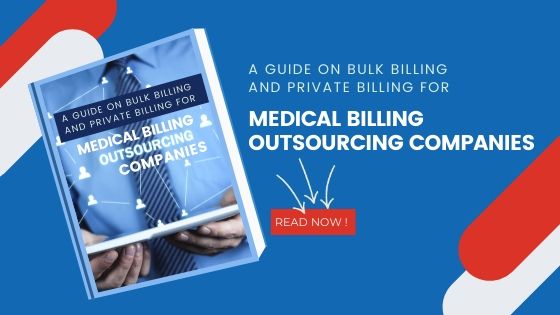How do you file appeals processing in medical billing when your insurance company denies the claim? Do you know that you have all the rights to appeal? Fine, it includes specific procedures for appeals processing in medical billing. What are the strategies you follow to make a successful appeal when your claims are denied? Well, we have come up with ten steps that help you file your appeals in the right way and get your payments without being halted for an extended period.
Remember that your health plan never drops your coverage or raises your rates just because you ask them to reconsider a denial through the appeals process. Of course, it can be frustrating to face denials often, but there might be various reasons clinging to it. Most importantly, find those reasons. Click here to read an article on reasons for denials and how to manage them. In this article, let’s find out ten steps to better appeals processing for your business development.
10 Steps to Follow for Appeals Processing in Medical Billing:
1. Get the Healthcare Provider’s bill for Appeals Processing in Medical Billing:
- You might be interested in asking the provider whether they have had the insurance company covered the bill or not. If not, why didn’t they cover it?
- Few common questions that pop up in the mind while doing appeals processing in medical billing are:
- What was the diagnosis?
- Why did you do what you did? The bill that was sent does not have CPT or HCPCS codes.
- It says here that there was surgery on the left shoulder, but my left shoulder was fine – the problem was in my right shoulder, and that’s where the stitches are.
- Why am I being billed for all of these things: anesthesia, general anesthesia, an anesthesiologist’s services, and the actual anesthesia, plus the anti-nausea medication for anesthesia?
- I had another anesthesia experience six months ago, and the billed price was one-third of what is billed here. Can you explain?
- You will have to note the names and phone numbers and instruct the representative to put information about your objections in your record, so you don’t have to repeat everything every time.
- While doing this, you will have to collect other records, such as diagnoses from the healthcare professional. Inform them about your verification of the bill or insurance claim in writing, and ask how to do that and who to send it to whom?
2. Get the Insurance Record while appeals processing in medical billing:
- This includes your EOB – Explanation of Benefits but explains very minimum. It’s also better to receive authorization and a commitment of payment in advance.
- Look into what was paid and what’s your responsibility is, were there explanations on the bill?
- Follow the exact instructions as you did to get the healthcare provider’s account.
3. Get the Employer’s Policy and involve Employee if required:
- On numerous occasions, a representative of the human resources department can fix these problems.
- The employer is essential to the customer of the insurance company. If the insurance payer denies a claim, the employer can get to know about, on the ground that the employer is paying for claims to be paid and not denied. If it’s an employer policy, ensure this base is touched or covered at every stage.
4. Answer the Patient’s Questions:
- In appeals processing in medical billing, there are chances where patients receive a bill that they don’t understand. The questions may include:
- Why did you charge me for this?
- What is this thing? Please explain. When you say “anesthesia,” what is the CPT code for it?
5. Question the Insurance Company and Follow the Appeals Processing in medical billing:
- It’s always important to question the insurance company regarding your claims. The questions include:
- Why did you refuse to pay for this charge?
- Why are you not paying? Would you mind checking again?
- Can you tell me where in my policy it explains that?
- The explanation of benefits will have an appeal process and follow it accordingly.
- At times, incorrect HCPCS code can cause a bill to be rejected, and sometimes, it would cause confusion between you and the insurance company.
- You might find the answers to the questions asked.
6. Check For what you’re asked to pay:
- Often, the insurer has a contract agreeing that it will produce a “negotiated rate” or “allowed rate” or “contract rate” for a given service to a given provider. It may be written on your bill, along with a notation that your responsibility is $0.
- Sometimes, the difference between the sticker price and the insurer’s payment is your responsibility, depending on how your plan’s written, whether you’ve met your deductible, whether you have co-insurance, and so on.
7. Call Again:
- Make a pile of paper with documentation and send it to everybody on the list.
- Tell them specifically that you want them to rectify the problem in 30 days and follow up.
8. You can offer to pay a lower price sometimes:
- Most often, these bills are charged on a “chargemaster price” and essentially similar to a “sticker price” or “manufacturer’s suggested retail price,” and which can be wildly inflated.
- Frequently, healthcare professionals will accept a lower rate if you offer to pay immediately.
- We also heard that providers would put you on a payment plan, with a monthly payment of modest size.
- Sometimes, people suggest that you wait to make this offer until a bill has been sent to a collections agency. We do not recommend that.
9. Financial Aid from the Government:
- Occasionally, we hear of people going on financial aid.
- This can come from the hospital/provider, the state, or some other source, which is time-consuming and not a certainty.
- Also, it’s easier to talk about price before and if you can establish a price you know about and can afford before, rather than after.
10. Finally, report back using the information:
- The Medicare reimbursement rate for your procedure in your area is what Medicare pays the healthcare providers.
- In fact, it’s the closest thing to a fixed or benchmark price in the marketplace.
- Finish the process and get your revenue payments on time.
Appeals processing in medical billing can become tricky if not performed accurately. Follow the best advice for processing your appeals with no fault. Outsourcing your claims might bring better relief to yourself and your business, as it’s dealt with by experts.
To learn more about healthcare, please subscribe to our blog. Do write us your opinions in the comment section. Follow us on Facebook, LinkedIn, Twitter, and Instagram.




